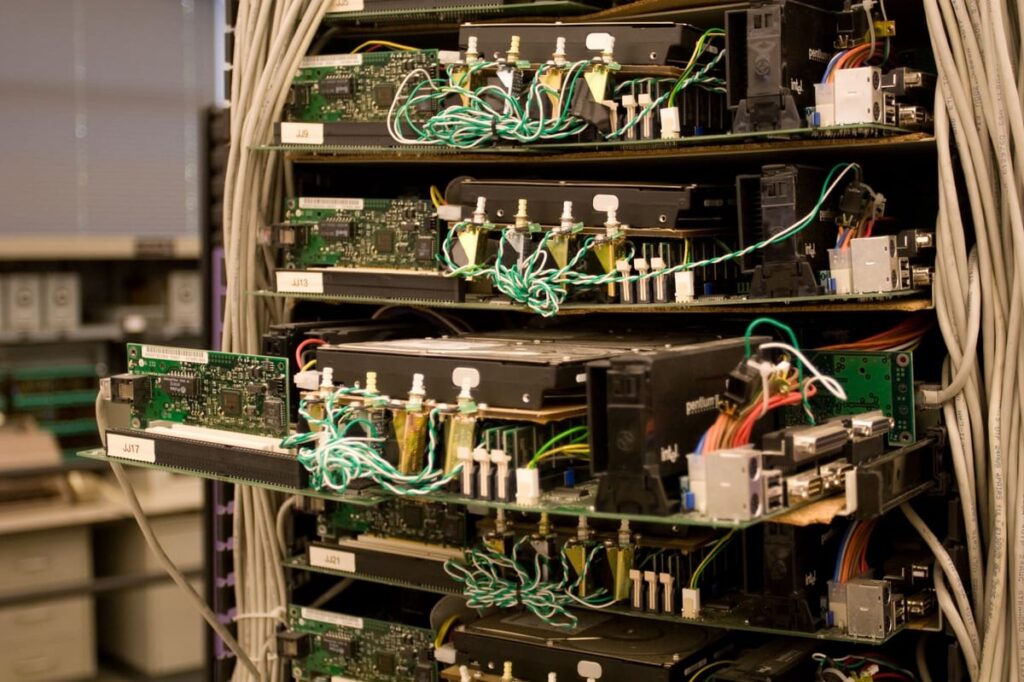Indonesia is leading a financial revolution. Fintech has been a significant force in the country, altering the way millions of people use, send and receive money, handle finances and consume financial services. This latest fintech Indonesia find has indicated a whole new thinking relative to financial inclusion and economic engagement that goes far beyond the face of convenience. From the busy streets of Jakarta to isolated island settlements, technology-driven financial solutions are removing obstacles and opening up previously unthinkable possibilities. Every aspect of society is impacted, since it changes conventional banking ties and gives people previously unheard-of authority over their financial life.
-
Mobile Payment Systems Transform Daily Commerce
Daily purchases in Indonesia’s varied terrain have been transformed by mobile payment services. Besides currency, street vendors have adopted digital payments and clients can easily pay them through the use of smart phones. The shift has eliminated the many hurdles in the daily running of business and has reduced the use of real money and made transactions easier and simpler. The popularity of the use of QR code payments has received particularly favourable reception among Indonesian consumers, who obtained a familiar and yet innovative way of going through digital transactions. These systems’ persistence and crucial importance in contemporary economic activity have been demonstrated by their ability to sustain trade during difficult periods when physical contact became limited.
-
Banking Services Reach Previously Excluded Communities
Banking services have been effectively expanded by financial technology to communities that were previously inaccessible to traditional banks. Through agent networks and mobile applications, underprivileged communities and rural locations may now receive basic financial services. Because of this extension, people who were previously excluded may now receive transfers, and store money safely, along with established financial histories, opening up new avenues for economic engagement. Significant obstacles that previously kept millions of people from obtaining official financial services have been eliminated thanks to streamlined account creation procedures as well as lowered documentation requirements. In Indonesia’s physically difficult terrain, where opening physical bank branches was sometimes impracticable or financially prohibitive, digital banking solutions have proven especially efficient.
-
Small Business Growth through Digital Lending
Digital lending platforms have given Indonesian entrepreneurs and small enterprises access to new sources of capital. These cutting-edge services assess creditworthiness using many data sources and expedited approval procedures, sometimes offering funding choices in a matter of hours as opposed to weeks. More companies can now get expansion funding thanks to the reduction or elimination of traditional collateral restrictions. Entrepreneurs now have easier access to and comprehension of company funding because of the streamlined application procedures and clear conditions. Micro, small, and medium-sized businesses, which are the foundation of Indonesia’s economy, have profited greatly from the democratization of credit as it has given them the means to invest in growth prospects, buy goods, and expand operations.
-
Investment Opportunities Become Widely Accessible
Irrespective of their initial capital or level of literacy, ordinary citizens in Indonesia can now access financial markets because of technology, which has democratized investing alternatives. Digital investing platforms with their low minimum investment levels, simple interfaces, and educational resources embrace newcomers to the capital markets. Robo-advisor and automated investment applications are more affordable purchases of expert-level money management. Such websites have enabled middle-income households to create long-term wealth by bringing about concepts such as systematic investing plans and fractional investing. The transparency and real time access to investment performance has instilled more confidence in first-time investors enabling increased involvement of financial markets by a diverse range of demographic groups.
-
Insurance Products Become Simple and Affordable
For Indonesian customers, digital insurance platforms have made it easier to choose products, apply for insurance, and handle claims. More precise risk assessment and pricing have been made possible by technology, which frequently leads to more reasonably priced coverage alternatives. Younger populations and tech-savvy consumers now find insurance more enticing due to the removal of complicated paperwork and drawn-out approval procedures. There are now micro-insurance solutions that provide extremely affordable protection for certain demands and brief periods of time. Mobile applications for handling claims have increased transparency and decreased wait times, which has increased consumer satisfaction. These developments have led to the increased accessibility of insurance in Indonesia, which has provided a viable measure of security to members of the family and corporations that were not adequately covered.
-
Transactions Become Efficient and Affordable
Fintech advances have greatly increased the efficiency of cross-border payments and international money transfers. Indonesian expatriates could now transfer their money back home faster and cheaper than before using the traditional banking mechanisms. Enhanced transparency in exchange rates as well as faster settlement periods are beneficial to the international businesses. These enhancements have helped households who rely on foreign income while fortifying Indonesia’s economic ties to international markets. More international corporate partnerships have been sparked by the cross-border transactions’ increased dependability in addition to decreased complexity. Competitive exchange rates provide greater value for money transfers, while real-time tracking and alerting systems give consumers piece of mind.
-
Financial Education and Awareness Improve
Fintech platforms are becoming effective means of raising financial literacy throughout Indonesia’s heterogeneous populace. In order to assist users in making well-informed decisions, interactive programs offer budgeting tools, instructional information, and individualized financial guidance. Learning about finance is made interesting and approachable by gamification features and intuitive user interfaces. These websites frequently provide loan, investment, and insurance calculators to assist consumers in understanding financial items prior to committing. Learning possibilities arise naturally during real transactions when financial services are integrated with educational material. Better financial decision-making and more confidence in handling personal finances are the outcomes of this strategy, which has outperformed more conventional financial education techniques.
Conclusion
The fintech revolution in Indonesia symbolizes a fundamental movement toward financial inclusion and economic empowerment, going beyond mere technology improvement. A more approachable, effective, and user-friendly digital transformation Indonesia that meets a range of demands throughout the archipelago has been produced by the change. Indonesia’s financial industry is well-positioned to spearhead regional innovation as technology advances while guaranteeing that advancements benefit all residents.



